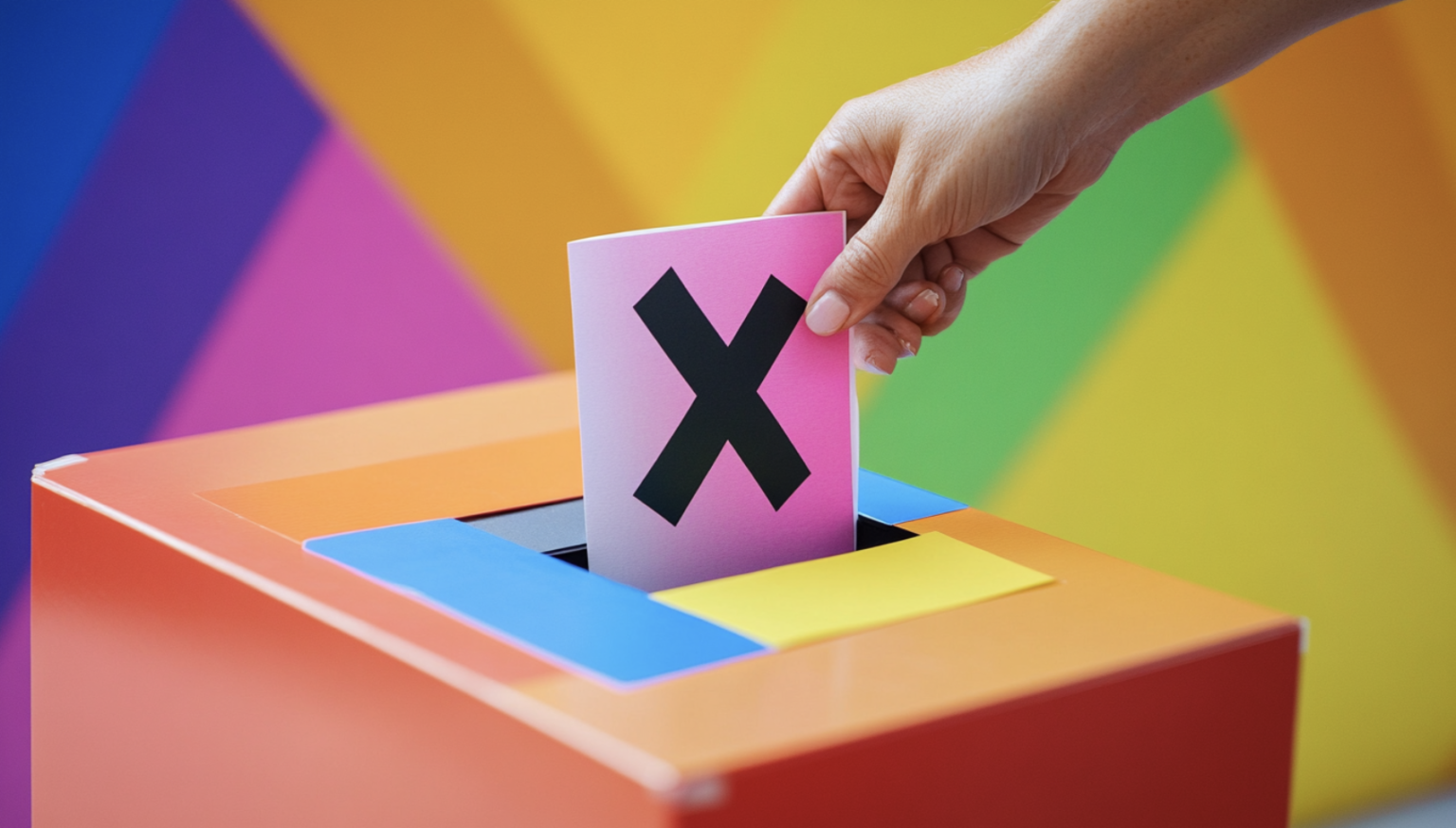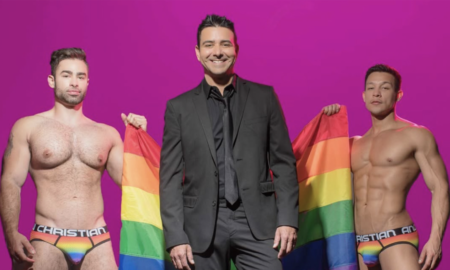Exit polls conducted at the US Presidential election reveal that the LGBTQ+ community voted Democratic at unprecedented levels this year, with 88% supporting Kamala Harris in contrast to only 12% for Donald Trump. This marks a shift from previous elections, where LGBTQ+ support for Republican candidates fluctuated between 25% and 33%. Analysts suggest that this dramatic increase in solidarity among LGBTQ+ voters signals a collective understanding of the implications that their votes have on issues such as marriage equality and personal rights.
Conversely, criticism was directed at various factions within the community, notably the organisation Queers for Palestine. Critics argue that their endorsements and actions, which included disruptions at Harris rallies and Pride events, could be viewed as detrimental to the LGBTQ+ cause. Many LGBTQ+ advocates lament that any alignment with groups perceived as hostile to LGBTQ+ rights, such as Hamas, could threaten the progress made within the community, particularly in light of the political climate following Trump’s election victory, which coincided with Israel’s announcement of land annexations.
GLAAD, the advocacy group for LGBTQ+ media representation, also faced scrutiny for its actions leading up to the election. Their campaign against the New York Times regarding coverage of transgender issues has been characterised as a misallocation of resources, with critics suggesting that efforts would have been more effectively directed towards countering Trump’s record of anti-transgender advertisements, which reportedly totalled $251 million. GLAAD’s initiatives seemed to have fallen short in the face of such media opposition, raising questions about strategic priorities in the fight for LGBTQ+ rights.
Despite the fractious discussions, noteworthy victories were also recorded within the LGBTQ+ political landscape. The Victory Fund highlighted significant electoral achievements, including the election of Sarah McBride as the first openly transgender person to serve in Congress, alongside Julie Johnson, the first out Southerner elected to the legislative body. Over one hundred candidates from LGBTQ+ backgrounds emerged victorious in various roles including judges, city council members, and state senators, suggesting a potential evolution in political representation for the community.
In addition, the Democratic Party experienced success in four of the five swing states with Senate seats up for re-election, creating a robust presence in these crucial political battlegrounds. This reality has led to questions regarding the messaging strategies employed to galvanise broader support and expand the Democratic base beyond the traditionally supportive demographics, including Black and Jewish women.
As community leaders and advocates reflect on these recent developments, conversations continue regarding strategies to engage with constituents who may hold differing viewpoints. The overarching challenge remains how to create inclusive dialogues that bridge divides within the LGBTQ+ community and foster a united front for future elections, as many strive for continuity in advocacy and representation.
Mark Segal, a notable journalist and advocate for LGBTQ+ rights, poses that acknowledgment of differing political opinions within the community may be essential for forging a path toward future victories, suggesting a need for constructive engagement with broader voter bases.
Source: Noah Wire Services
- https://www.outfrontmagazine.com/lgbtq-voters-for-trump/ – Corroborates the significant shift in LGBTQ+ voting patterns, with 86% supporting Kamala Harris and 13% supporting Donald Trump in the 2024 election.
- https://www.brookings.edu/articles/lgbtq-voters-are-a-consequential-voting-bloc-in-the-2024-election-cycle/ – Supports the high level of LGBTQ+ support for Democratic candidates, with 67% planning to vote for Kamala Harris over Donald Trump, and highlights the growing influence of LGBTQ+ voters in elections.
- https://www.brookings.edu/articles/lgbtq-voters-are-a-consequential-voting-bloc-in-the-2024-election-cycle/ – Provides data on the increasing political engagement and voting rates among LGBTQ+ individuals, particularly among younger generations.
- https://www.pewresearch.org/politics/2024/06/06/gender-identity-sexual-orientation-and-the-2024-election/ – Details the differing views on gender identity and sexual orientation among Biden and Trump supporters, highlighting the polarization on LGBTQ+ issues.
- https://glaad.org/election-2024-how-lgbtq-voters-and-allies-affirmed-equality-at-the-ballot/ – Reports on the electoral achievements and ballot measures that support LGBTQ+ rights, such as marriage equality and reproductive health care protections.
- https://glaad.org/election-2024-how-lgbtq-voters-and-allies-affirmed-equality-at-the-ballot/ – Highlights the passage of state-level ballot measures enshrining marriage equality and other protections, contrasting with past opposition to such measures.
- https://glaad.org/covering-election-2024/ – Discusses the critical role of media in reporting on LGBTQ+ issues and the challenges faced by the community due to anti-LGBTQ+ legislation and rhetoric.
- https://www.outfrontmagazine.com/lgbtq-voters-for-trump/ – Mentions the divide within the LGBTQ+ community and the criticism towards certain factions, such as those perceived as hostile to LGBTQ+ rights.
- https://www.brookings.edu/articles/lgbtq-voters-are-a-consequential-voting-bloc-in-the-2024-election-cycle/ – Notes the electoral successes of LGBTQ+ candidates, including Sarah McBride and Julie Johnson, and the broader impact on political representation.
- https://glaad.org/election-2024-how-lgbtq-voters-and-allies-affirmed-equality-at-the-ballot/ – Details the election of over 100 LGBTQ+ candidates to various roles, indicating a potential evolution in political representation for the community.
- https://glaad.org/covering-election-2024/ – Emphasizes the need for inclusive dialogues and constructive engagement to bridge divides within the LGBTQ+ community and foster a united front for future elections.




















